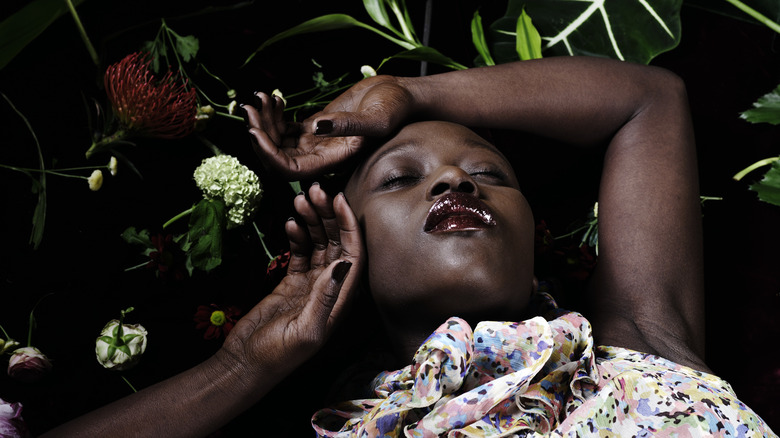Do Deaf People Dream Differently?
Dreaming is a fascinating experience, as your subconscious is essentially taking you through a story it has created while you're sleeping. Everyone dreams differently, with some people reporting more lucid dreaming whereas others encounter frequent nightmares. To understand the science behind dreams, it's important to look at various factors that may impact your subconscious state, such as your physical and mental abilities.
According to Medical News Today, numerous studies have been conducted to determine how someone's physical and mental abilities impact their dreams and whether findings are consistent among those sharing a specific impairment. One of the most closely studied characteristics is that of deafness, as researchers were curious to learn whether deaf people dream differently than those with unimpaired hearing. The results were surprising for a number of reasons, as complete deafness or even significant hearing impairment can have a direct effect on the dream state.
Though these studies relied on small groups of participants to collect data, the results have opened a world of discussion in regard to how deaf people dream and what can be learned from these experiences.
Deaf people experience a heightened dream state
A study conducted with 14 individuals with hearing impairments reported some significant news in regard to how deaf people dream. According to the results, the participants reportedly gave no indication of their hearing impairment in approximately 80% of their dreams (per Medical News Today). These same participants stated they were often able to speak in their dreams, and a select few indicated they were able to either hear or understand spoken language.
Psychology Today reported on a similar study where approximately 86 hearing impaired individuals were asked to track various aspects of their dreams. This included sensory and emotional details to ensure researchers were gaining an accurate understanding of the subconscious state. Participants with congenital hearing loss, or those who had experienced hearing loss before the age of five, reported amplified color, vividness, and spatial depth in their dreams. Individuals with hearing loss often experience more lucid dreams and nightmares, and elevated emotions including hope and surprise, per Psychology Today.
Deaf people are significantly more likely to have recurring nightmares
There are many different types of dreams, such as lucid dreams where dreamers feel they are aware and can control the landscape around them, and symbolic dreams that might make no sense while you're experiencing it, but you know your subconscious is trying to work something out behind the scenes. Researchers have found that people with hearing loss are prone to have one of the not-so-fun dream types: nightmares. They can range from the classic monster hiding under the bed scenario to reliving a traumatic experience over and over until your alarm goes off.
Deaf people, like many who are differently abled, may find themselves struggling to assimilate into a society that is made up of mostly hearing individuals — while approximately 5% of the world's population are considered deaf, the other 95% rely on sounds and speaking for seemingly just about everything. One study published by the National Library of Medicine made the connection that people with significant hearing loss are more prone to experiencing unpleasant dreams with "negative imagery and emotions" due to the "higher rates of interpersonal traumatic experiences among the deaf population."
In the same study, the population of children who were born deaf was analyzed, and found that 95% come from hearing families, and less than 10% of those families successfully learn sign language. This demonstrates that many are born into a communication struggle, and more often experience anxiety, stress, and frustration on a daily basis, which can manifest into recurring nightmares.
The most common dreams amongst deaf people
While people with significant hearing loss tend to have more vivid dreams thanks to their enhanced reliance on sight and touch, and are more likely to have nightmares due to increased daily stress, they still dream just like everyone else. Even without the ability to hear, they can feel the anxiety from a dream where they are taking a test they didn't study for, and the excitement of a dream where they have reunited with "the one who got away". Thanks to many dream studies, experts have uncovered the most common dreams amongst all humans, regardless of any hearing or vision loss.
So, which dreams are truly the most common? According to Forbes, you've probably had at least a few of them, yourself. The most common dream for people to have once they've drifted off to sleep is the falling dream. You know the one — you're flying through the air, and you aren't sure where or why but you know you're falling fast, and you can definitely feel the sensation of gravity pulling you down. Being chased is the second most popular recurring dream, followed closely by losing teeth, being cheated on (or cheating on your partner), and being naked in public. Interestingly, many of the most common dreams are all pretty traumatic or unpleasant in one way or another. So next time you lay down for the night, remember that the likelihood you'll be awoken from a dream where you're toothless or mourning a breakup is ... pretty high.



